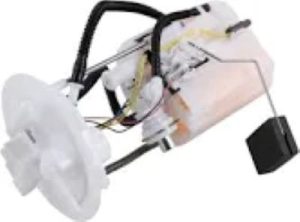Of course, this would impact vehicle emissions directly because the fuel-to-air ratio is directly affected by this. A good example would be in gasoline engines: fuel pressure will always have to fall between 35 and 65 PSI for precise fuel delivery. If the fuel pump is faulty in providing this pressure, the air-fuel mixture could possibly end up too lean or too rich. A rich mixture results in incomplete combustion, which raises the HC emissions; a lean mixture will cause NOx to increase, both of which have damaging consequences on results obtained from an emission test.
Fuel pumps that have inconsistent fuel flow disrupt the engine efficiency and create inconsistencies in emissions. According to Bosch, one of the leading companies in automotive fuel systems, even something as minimal as a 10% drop in fuel pressure could result in up to a 20% increase in exhaust emissions. This impact on emissions is more pronounced in high-mileage vehicles where fuel pump wear is a greater concern. The main reason that a failing fuel pump could increase the CO emission is due to incomplete burning of fuel, which in turn has to do with the score vehicles receive in emissions tests regarding compliance.

A failing fuel pump can increase the frequency of engine misfires-continuing to further the amount of fuel reaching the exhaust without proper combustion. Engine misfires result in an increase in carbon monoxide (CO) emissions, wherein fuel gets thrown out without proper combustion. This is not only inefficient and raises emissions, but also drastically reduces fuel economy, forcing the ECM to adjust injector timing and further impacting combustion. As car expert Scotty Kilmer points out, "A failing fuel pump disrupts fuel flow, which is crucial in controlling emissions," thus emphasizing the fact that healthy pumps are needed to maintain clean exhaust output.
The use of a superior-grade Fuel Pump will help ensure fuel delivery with consistency, thus aiding in cleaner combustion and fewer chances of failure in emissions. Regular maintenance of the fuel system, such as fuel pressure check-ups and replacement of the pump in case of performance problems, keeps the emissions within limits. Fuel pump functioning effectively will help avoid unexpected failures in the stringent emission standards set by specific regions and contribute toward the health of an engine. Proper functioning of fuel pumps ensures efficient, clean combustion in accordance with the set emissions and environmental standards.
